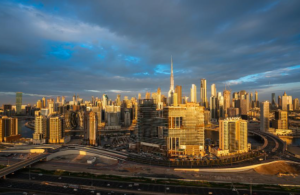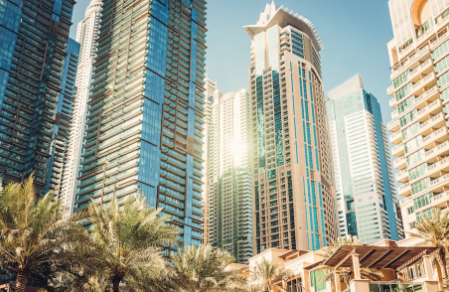Dubai, UAE — Dubai’s property market is experiencing unprecedented growth in 2024, setting new records for sales and values. However, Hussain Sajwani, chairman of Damac Properties, has expressed significant concerns about the city’s soaring living costs, which he fears may impact its long-term appeal.
Dubai’s Record-Breaking Real Estate Surge
Dubai’s real estate sector is on an explosive trajectory, with 2024 expected to be another record-setting year. In July, property sales surged to 49.6 billion dirhams ($13.5 billion), marking a staggering 31.63% increase from the previous year. The first half of 2024 alone saw over 43,000 transactions valued at approximately AED122.9 billion, reflecting a 30% rise year-over-year. This remarkable growth is driven by the rapid absorption of new inventory, with about 80% of the units launched since 2022 already sold.
“The Dubai property market is thriving, driven by unparalleled demand, especially from Europe,” Sajwani commented. “Dubai is now attracting everyone from taxi drivers to top executives, eager to be part of its dynamic growth.”
Concerns Over Rising Living Costs
Despite the booming property market, Sajwani has voiced concerns about Dubai’s escalating cost of living. He highlighted that the increasing demand, particularly for luxury real estate, is inflating prices across all sectors, from housing to everyday goods.
“What worries me is that Dubai is becoming an increasingly expensive city,” Sajwani told CNBC’s Dan Murphy. “With so many talented individuals and businesses moving here, demand is rising, which drives up prices and inflation. Securing a spot in a school has become challenging, and businesses are raising prices accordingly.”
Sajwani urged the Dubai government to address these rising costs, though he acknowledged the complexity of managing such issues amid a continuous influx of new residents and investors.
Dubai’s Global Appeal and Post-Pandemic Growth
Sajwani also noted that the Covid-19 pandemic inadvertently boosted Dubai’s global appeal. As other parts of the world grappled with lockdowns, Dubai capitalized on the opportunity to attract new residents and businesses with initiatives such as remote work visas and entrepreneurial programs.
“Dubai is now a global city, attracting a diverse range of talent and businesses,” Sajwani said. “The city’s growth is on an entirely different scale compared to the pre-Covid era.”
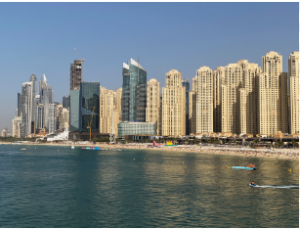
Market Stability and Regulatory Measures
Reflecting on Dubai’s past, Sajwani addressed concerns about potential market instability reminiscent of the 2008-2009 crisis, when the property market crashed. However, he expressed confidence in the current regulatory framework, which he believes is robust enough to prevent a repeat of past issues.
“The regulations introduced by the Dubai government after the 2008 crisis have been highly effective,” Sajwani explained. “Strict rules on developers, zoning, and escrow accounts have stabilized the market. Customer funds are well-protected, contributing to a more efficient and stable property market.”
Dubai’s real estate market continues to soar, driven by high demand and substantial investment. However, as the city becomes increasingly expensive, stakeholders like Sajwani are calling for solutions to balance growth with affordability. How Dubai manages these rising costs while maintaining its global allure will be crucial for its long-term success.
Key Terms:
- Dubai property market 2024
- Hussain Sajwani Damac
- Dubai real estate boom
- UAE wealth magnet
- Rising living costs Dubai
Dubai’s Record-Breaking Real Estate Surge
Dubai’s real estate sector is on a historic upswing, with 2024 projected to be another record-setting year. According to Elite Merit Real Estate, property sales in July 2024 reached 49.6 billion dirhams ($13.5 billion), reflecting a remarkable 31.63% increase from the same period in 2023. The first half of 2024 saw over 43,000 transactions valued at approximately AED122.9 billion, marking a 30% rise year-over-year. This growth is largely driven by the rapid absorption of new inventory, with approximately 80% of the units launched since 2022 already sold.
Market Dynamics:
- Luxury Segment: The luxury real estate segment continues to drive demand, with high-net-worth individuals from around the world seeking premium properties in Dubai.
- Foreign Investment: Increased foreign investment is also a significant factor, as Dubai remains a top destination for international buyers looking for safe havens and profitable returns.
- Infrastructure Development: Ongoing infrastructure projects, including new residential and commercial developments, are further boosting market activity.
- Concerns Over Rising Living Costs
Despite the booming property market, Sajwani has expressed concerns about the increasing cost of living in Dubai. He noted that the surge in property prices is contributing to higher costs across various sectors, including education, healthcare, and daily expenses.
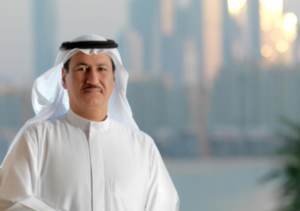
Cost Implications:
- Education: Securing spots in high-quality schools has become increasingly difficult and expensive, adding financial pressure on families.
- Healthcare: Rising costs in the healthcare sector are another concern, with increased demand leading to higher prices for medical services.
- Consumer Goods: General inflation is affecting everyday goods and services, with prices climbing due to increased demand and higher costs of living.
“What worries me is that Dubai is becoming an increasingly expensive city,” Sajwani told CNBC’s Dan Murphy. “With the influx of talent and businesses, demand is driving up prices and inflation. Securing a seat in a school has become a challenge, and businesses are adjusting their prices accordingly.”
Dubai’s Global Appeal and Post-Pandemic Growth
Sajwani highlighted how the Covid-19 pandemic inadvertently boosted Dubai’s global appeal. The emirate capitalized on the opportunity by offering remote work visas and promoting itself as a safe and attractive destination for businesses and residents during global lockdowns.
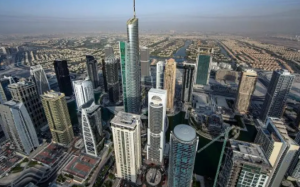
Key Drivers:
- Remote Work Visas: Dubai introduced visas for remote workers, attracting professionals from around the world seeking flexible work environments.
- Entrepreneurial Programs: Initiatives aimed at fostering entrepreneurship have drawn business owners looking for new opportunities.
- Tourism Recovery: Post-pandemic, Dubai’s tourism sector has rebounded strongly, further driving economic growth and property demand.
“Dubai is now a global city, attracting a diverse range of talent and businesses,” Sajwani said. “The city’s growth trajectory is on an entirely different scale compared to the pre-Covid era.”
Market Stability and Regulatory Measures
Reflecting on Dubai’s past, Sajwani addressed concerns about potential market instability similar to the 2008-2009 financial crisis, which saw the property market crash. However, he expressed confidence in the current regulatory framework, which he believes is robust enough to prevent a repeat of past issues.
Regulatory Enhancements:
- Strict Regulations: Post-2008 regulations have introduced stringent rules for developers, ensuring market stability and protecting investors.
- Escrow Accounts: Regulations mandating escrow accounts have safeguarded customer funds, enhancing trust in the real estate market.
- Zoning Laws: Updated zoning laws have controlled the pace of development, preventing market oversaturation.
“The regulations implemented by the Dubai government after the 2008 crisis have been highly effective,” Sajwani explained. “Strict rules on developers, zoning, and escrow accounts have stabilized the market and protected customer funds, contributing to a more efficient and stable property market.”
Dubai’s real estate market continues to thrive, driven by high demand and substantial investment. However, as the city becomes increasingly expensive, stakeholders like Sajwani are calling for measures to balance growth with affordability. The ability of Dubai to manage rising costs while maintaining its global allure will be crucial for its long-term success and economic sustainability.
